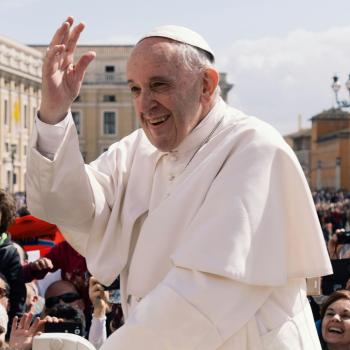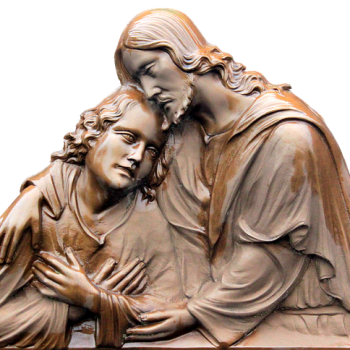In current discussions about programs like Canada’s Medical Assistance In Dying (MAID), I am reminded of an episode of Star Trek: The Next Generation: “Half a Life,” which aired on May 6, 1991, (Season 4
Episode 22; Clips of this episode are available on YouTube.)
David Ogden Stiers plays a scientist who must abandon important research because he is turning 60, the age at which all people on his planet must perform the “Resolution,” a ritual act of voluntary euthanasia.
The ritual is intended to relieve society from the responsibility of caring for the elderly, and they aren’t going to bother with choosing a time based on case-by-case analysis—for convenience and “fairness,” everyone dies at the same age.

The Resolution is so ingrained in their culture that, when the scientist considers seeking asylum on the Enterprise, his daughter says she is ashamed of him for refusing to comply with his heritage and bringing dishonor to their family. He capitulates and goes home to die in a ceremony designed to bring dignity and honor to the ending of his life.
The Madness of Crowds
Louise Penney’s most recent bestseller, The Madness of Crowds, deals with the question of “When does euthanasia become eugenics; when is it dying by one’s own choice and dying because you are considered a burden that needs to be eliminated?”
In other words, as in the Star Trek example, when does the right to die become the obligation to die? As Penney wrote: “Will the angel of mercy dispatch, not a tormented loved one, but an inconvenience?”
Penney, a Candian, describes the case of a nursing home during the pandemic where the residents were abandoned by the staff. The elderly and infirm were discovered in deplorable conditions and many died. Here in the US, we had similar tragedies.
While there was outrage at the time, the incident generated discussion that included, “Well, they would have died soon anyway. Perhaps it’s not such a bad thing but a blessing. The deaths of the pandemic were a cull of the weak;” therefore, ultimately a healthy remedy.

Penney’s main character knows that the underlying condition “did not lie with those who died, but with those who allowed it to happen.” That is, don’t blame the dead and the dying; it’s those living who have the problem, and it’s a problem of ethics.
Slippery Slope
Since MAID began, the slippery slope has been in a steep decline. Already, MAID is being recommended to people with depression and other conditions that can be treated, but the attitude seems to be “Why bother? There’s no shortage of people, so those with problems should just exit and save us the effort.”
As one character in Penney’s book said, the plan “isn’t just spreading death, [it’s] spreading despair. Such policies tell people, if you are not perfect, quit taking up space. We don’t need you.” Culling the weak (the unlucky, the disabled, or anyone who needs services at the taxpayer’s expense) is just practical.
The Star Trek scientist would have dishonored his family and been banished by his government if he hadn’t submitted to the expected practice of suicide. It may not have been the law, but it would have left him with the status of a criminal.
That is the direction the euthanasia bandwagon is taking: Some people are thought to have committed the “crime” of “taking too long to die” as Penney puts it, and therefore should be executed.
One on Every Corner or In God We Trust
In Lee Child’s book Make Me (part of the Jack Reacher series), Reacher happens upon a town that is the final destination for those seeking physician-assisted suicide (PAS). “Is this the future?” one character asks. “It could be 100 years from now. Chaos, over-population, no water. There could be one of these [PAS centers] on every corner, like Starbucks.”

Are we headed to such a culture? If not mandated by law, will certain people be pressured by social censure into suicide? Will all the progress of accommodation go down the drain as the healthy, privileged, young, beautiful, and able-bodied ask, “Why should we have to spend money on their problems when they can just kill themselves?”
Already, many people, of all ages, say that they would commit suicide rather than be a burden in infirmity or old age, or have to endure pain. Examples of this choice are everywhere in the media: movies, TV, books (as my examples indicate). They permeate modern opinion.
My bottom-line question on this subject, as with abortion, is: Aren’t life and death God’s decisions? How presumptuous of us to say who may live and who should die. For people of faith, my caution is to trust in God’s plan for you. There is a reason you were born and a reason for when you will die. Our only decision is how to best use that sacred time.













